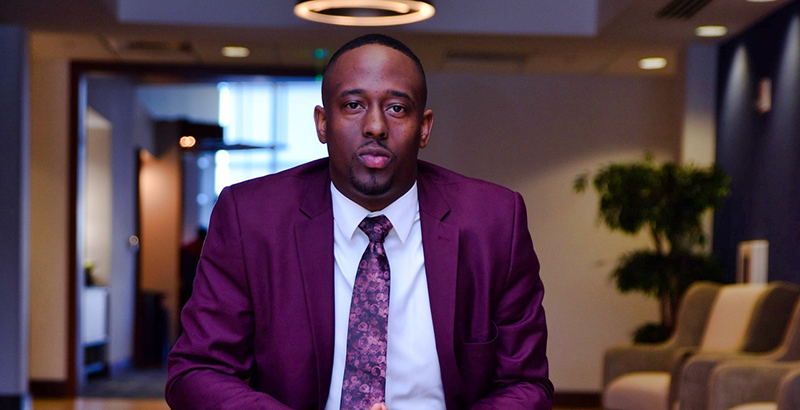New Report: How to Build Culturally Affirming Schools, According to Over 100 Black Teachers

Get stories like this delivered straight to your inbox. Sign up for The 74 Newsletter
Recruiting a diverse staff and building a “family-like” school culture are among the key action steps more than 100 Black educators recommend school leaders follow in a recent report released by Teach Plus and the Center for Black Educator Development.
The paper presented the findings of focus groups conducted during the spring and summer of 2020, compiling the perspectives of 105 Black teachers from across 12 states. Educators in the group had an average of 12 years of classroom experience, though some were newer to teaching and others were more veteran.
The report offers key insights on how to build school environments that feel welcoming for Black educators, such as ensuring that curricula include the perspectives of historically underrepresented groups. The authors also recommend that leaders provide opportunities for teachers of color to participate in mentorship programs and focus groups to debrief their experiences, especially in schools with majority-white faculty, where Black, Indigenous, Hispanic or Asian educators may be one of just a few colleagues who share their racial identity.

The findings come at a crucial time, as Black teachers are leaving the profession at higher rates than many other groups due to myriad issues including professional isolation and burnout. Currently, about 7 percent of all teachers nationwide are Black compared to 15 percent of all students.
Research underscores the academic and social benefits that teachers of color deliver for young people of all races, but particularly for students who share their same racial identity. Many experts point to teacher diversification as a pressing need in public education, yet nationwide, 79 percent of educators remain white compared to only 47 percent of students.
“We know that students of color, particularly Black students, if they have a Black teacher, they’re more likely to succeed in school,” Sharif El-Mekki, founder and CEO of the Center for Black Educator Development, told The 74. But all too often, he noted, teachers of color are met with hostile work environments that leave them simultaneously overburdened and isolated — what he calls the “invisible tax” of being one of the few Black, Indigenous, Hispanic or Asian educators at their school.
The report co-published by El-Mekki’s team and Teach Plus points out numerous systemic reasons for the current teacher diversity gap. The often-celebrated 1954 Brown vs. Board of Education Supreme Court case, for example, integrated U.S. students but not educators — spurring tens of thousands of Black teachers across the South to lose their jobs. Many of them were more qualified and effective than their white peers because teaching, albeit in segregated schools, was one of the few professions widely available to African Americans with advanced degrees during Jim Crow.
Today, teacher preparation programs continue to feed disproportionately high shares of white educators into the field, thanks in part to certification exams that have long been the target of concerns for racial bias.
“The challenges to [boosting teacher diversity] are deeply embedded and calcified in our public schools,” said El-Mekki, who previously worked as an educator and principal in Philadelphia, in a press release. “Undoing them will require intentional and comprehensive effort by teachers, principals, district and state leaders.”
“Hiring people of color is not enough to create culturally affirming schools,” added Kyle Epps, a Philadelphia teacher cited in the report. “Schools need to have systems, programs, and curriculum in place whose main goals are to foster and celebrate people of color.”
Some first steps toward implementing such measures may be holding meetings and launching surveys through which parents can share their voices, teachers suggest.
“It is imperative that leaders cultivate a culture where families and communities have a platform to advocate for their kids and are given opportunities to play a role in decisions that impact learning and student success,” said Mississippi teacher leader Nicole Moore, who was also featured in the paper.
The group of Black educators who spoke to Teach Plus and the Center for Black Educator Development identified key recommendations for school leaders looking to foster more welcoming environments for their teachers of color. The paper includes practical resources such as self-reflection worksheets for teachers to help examine their own biases and tools to deepen curricular materials with real-world examples that relate to students’ own lived experiences.

“[The report] addresses not only what an affirming school culture looks like, but also provides clear and concise action steps teachers, educational leaders, and policymakers should take to transform school culture for Black teachers — in service of their students,” said Travis J. Bristol, assistant professor at the University of California, Berkeley and a Teach Plus board member.
Similar action steps, however, have recently come under fire in classrooms and rowdy school board meetings across the country. As some schools have begun to acknowledge and discuss systemic racism in the wake of George Floyd’s murder, a nationwide backlash (El-Mekki calls it a “whitelash”) against the perceived propagation of critical race theory in education has put a target on activities like implicit bias trainings or books written by Black authors. In one Texas town, it even led teachers to wrap their own personal bookshelves in caution tape, as administrators cracked down on classroom collections.
That’s not stopping El-Mekki or the Center for Black Educator Development.
“This idea of policing … Black minds and Black intellectuals is nothing new,” he told The 74. “Doing racial justice work takes courage and bravery.”
His organization will next month hold a conference to uplift Black male educators, who currently make up just 2 percent of all U.S. teachers.
But dismantling racism in schools, he underscores, is everyone’s responsibility — white folks included.
“It’s part of being an educator,” said El-Mekki.
And lest the path toward improvement seems daunting, the report cites Arkansas educator Iesha Green, who reminds principals and officials that, for key guidance, they need look no further than their colleagues who show up to classrooms day after day.
“My advice for leaders who wish to create culturally affirming schools is to learn about the nuances of various cultures and then listen to and work collaboratively with the practitioners who know the students best—teachers,” she said.
Get stories like these delivered straight to your inbox. Sign up for The 74 Newsletter

;)
